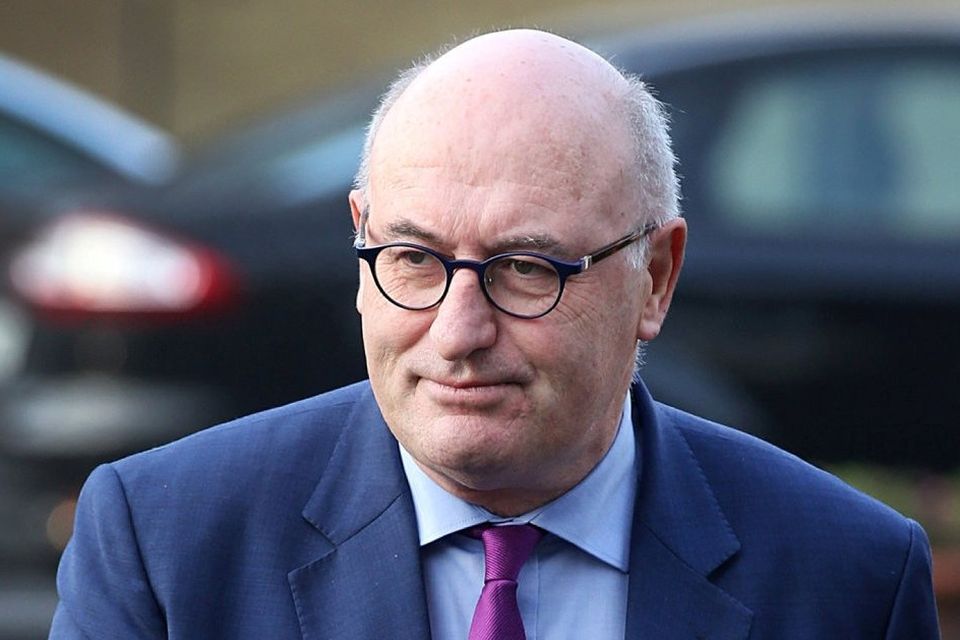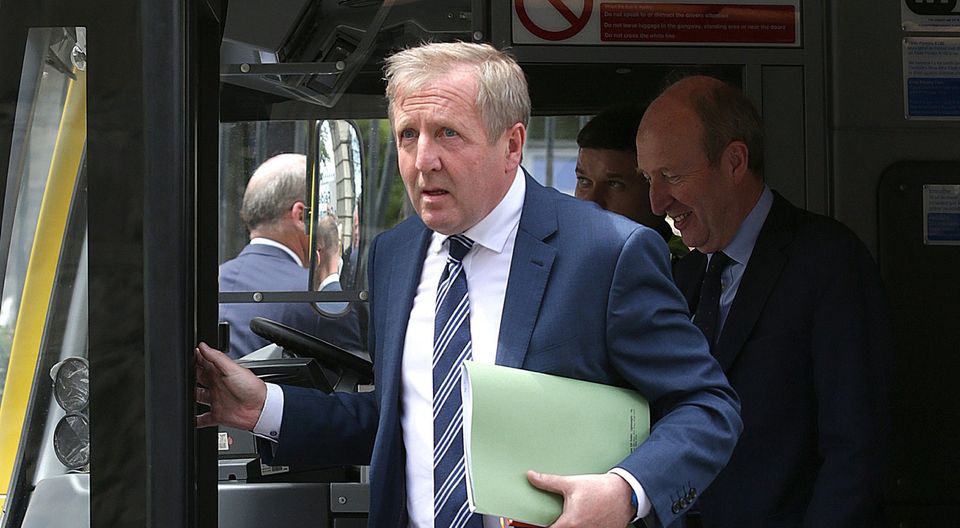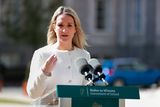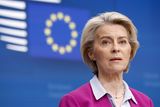Hogan's EU job in jeopardy as FG fears beef deal fallout
Phil Hogan, the EU’s agriculture commissioner. Photo: Steve Humphreys
Fine Gael is at war over a controversial EU trade deal which farmers say will flood the Irish market with cheap beef from South America.
And EU Agriculture Commissioner Phil Hogan is now facing a backlash from his own party over his involvement in negotiating the EU-Mercosur trade deal, which is putting his expected reappointment to the commission in jeopardy.
Fine Gael TD Pat Deering, who chairs the Oireachtas Agriculture Committee, said Taoiseach Leo Varadkar should “reconsider” appointing Mr Hogan for a second five-year term.
Mr Deering’s comments came as two Fine Gael Cabinet ministers privately raised doubts about Mr Hogan’s reappointment, with one saying his future was “on the line”.
Meanwhile, Agriculture Minister Michael Creed vowed to “frustrate, mitigate, to dismantle” the ambition of the trade deal and to protect the Irish beef sector. The deal has enraged farmers as, once ratified in the coming years, it would see the EU accept 99,000 tonnes of cheaper South American beef into its market every year.
Mr Creed’s comments put him at odds with Mr Hogan, who has staunchly defended the deal he helped broker between the EU and Mercosur countries (Argentina, Brazil, Paraguay and Uruguay).
Fight: Agriculture Minister Michael Creed has vowed to frustrate the deal, a stance which has put him at odds with Phil Hogan. Picture: Damien Eagers
Mr Hogan has now gone to war with farm organisations such as the IFA, which has said the deal could cost beef farmers up to €750m. Last night, he accused them of spreading misinformation.
"I fully understand the concerns of Irish beef farmers in relation to Mercosur. We want our farmers to feel reassured about the future, and therefore it is not helpful for farm organisations to spread wildly inaccurate numbers about the impact of Mercosur on the Irish beef sector," he told the Irish Independent.
"Our proper, costed economic analysis shows that the impact on the EU beef sector would be around 1pc or less of production," he said. He insisted safeguards for farmers are built into the deal.
But speaking to the Irish Independent, Mr Deering, a farmer and long-time member of the IFA, said he had "reservations" about reappointing Mr Hogan. "From a beef point of view - particularly when the beef sector is on its knees - this is not going to help," he said of the deal.
Mr Deering's comments were echoed by a Fine Gael Cabinet minister who said Mr Hogan's "job is on the line if this backfires".
A second Cabinet minister said they believed there would be a fresh appointment. "It's a very big prize to give to anyone for two terms," they said.
Fine Gael TDs privately expressed doubts about Mr Hogan's reappointment, with one saying there would be "second thoughts". Another said: "Time's up."
A rural Fine Gael senator said party members were "disappointed that a Fine Gael commissioner would bring in proposals that will harm the beef industry and rural Ireland".
The Mercosur deal will be raised at Cabinet today by a number of ministers including Mr Creed and Rural Affairs Minister Michael Ring. While it remains unclear whether Ireland can ultimately block the deal at EU level in the coming years, the Taoiseach has promised to protect beef farmers "whatever happens".
Meanwhile, Finance Minister Paschal Donohoe has warned a no-deal Brexit could cost the country a massive €6bn.
Speaking before the Oireachtas Budgetary Oversight Committee, he said: "If, as appears increasingly possible, there is a disorderly Brexit, there will be significant pressure placed on the public finances."
He said a no-deal Brexit would result in a budget deficit of between 0.5 and 1.5pc in 2020. "This amounts to a negative swing in the headline balance of up to €6bn," Mr Donohoe said.
He said the Government would run a budget surplus of 0.4pc if Britain crashed out of the EU. He also raised the prospect of temporary budget measures for certain sectors to limit the damage.
"The United Kingdom's exit from the European Union will have a detrimental impact on our economy and public finances whatever form it ultimately takes," he said. "But the magnitude of that impact depends upon how disorderly that exit is. There is no precedent in modern economic history for an event like Brexit...predicting its impact precisely is difficult."
Join the Irish Independent WhatsApp channel
Stay up to date with all the latest news
















